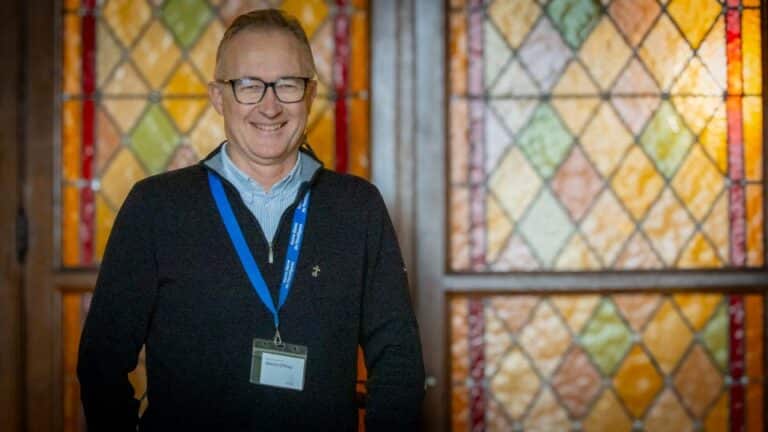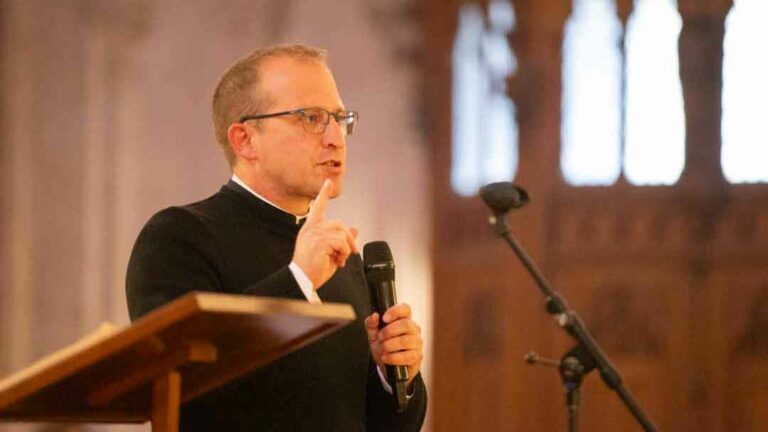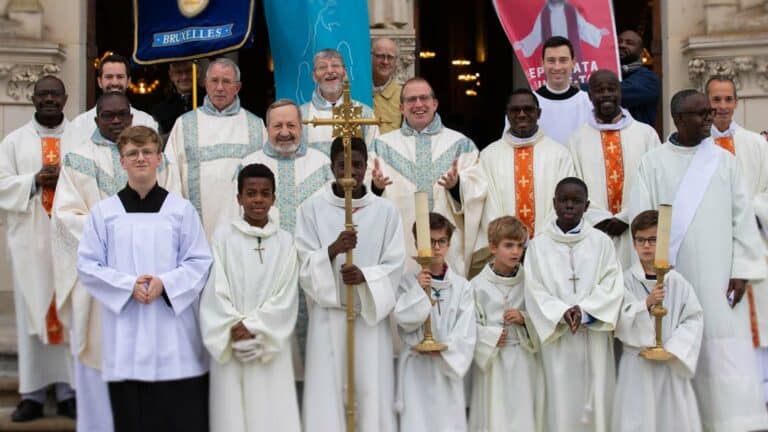Some prophecies, apparitions and messages from Christ, Mary or the saints, often apocalyptic in tone, seem to be have become very popular. Over the past twenty centuries, the Church has recognized only a handful of these and dismissed a significant number. How should private revelations be appreciated? Are they really necessary in my relationship with Christ? Stéphane Pélissier, csm, clarifies matters in the light of the recent teaching of the Dicastery for the Doctrine of the Faith.
“God has no other word to give us. He has told us everything at once in this one word […]; for what he said in parts to the prophets, he has said in full in his Son […]. This is why he who would now question him, or desire a vision or a revelation, would not only be foolish, but would be doing injustice to God, by not casting his eyes solely on Christ, without seeking something else in some novelty”.
St John of the Cross, The Ascent of the Mount Carmel 2, 22, quoted by Catechism of the Catholic Church No 65.
Why should revelations and visions be distrusted?
This addresses three shortcomings widespread among a certain number of faithful: a thirst for sensationalism, where revelations are pursued especially when they contain terrible threats; curiosity, out of a need to know more than what is written, even though they have not read the gospels thoroughly; and pride from the feeling that they have access to some information that most people don’t know, such as the date of the end of times, or many details that the evangelists ignored.
St. John of the Cross warns Christians against the temptation to ask God for “spiritual enlightenment” based on “supernatural knowledge”. He encourages the faithful to steer clear of and reject any “prophecies and revelations about the future” that might be made by supernatural means, as they present a risk for the soul.
Does it come from God or from men?
The Church has shown that it has ample means to discern on a human and spiritual level, if it grants itself the capabilities as well as the time and the freedom to do so. As a matter of truth, having an apparition of the Virgin Mary or a visionary in your diocese is often beneficial in terms of prestige, vocations and even financial resources…
Such events may originate from three different sources: divine, human (illuminism, psychiatric illness, more or less conscious mystical fraud, swindling) or demonic.
The question of signs
On May 17, 2024, the Dicastery for the Doctrine of the Faith called for a clear distinction between the tree and its fruit, stating that there may be real visions and miracles which do not come from God. According to Saint John of the Cross, “sometimes, the devil is behind”, and, more specifically, the devil can appear as an “angel of light” and give false visions and revelations to the soul in order to cause its fall. Last, he adds that “it is common for the devil to announce many future events, all apparently very true and very conform to reason, with a view to deceiving us”.
Pharao’s sorcerers gave identical signs to Moses and Aaron (Ex 7:10). Between 1504 and 1543, in her convent in Cordoba, Sister Magdalena of the Cross did countless miracles and fulfilled prophecies, but in the end confessed that these were the work of a pact with the devil she had made in her earliest childhood.
Private revelations have always existed
Private revelations have always existed, even in Jesus’ time. Christ himself warned his apostles: “False messiahs and false prophets will arise, and they will produce great signs and wonders, so that, if possible, they will lead astray even the elect” (Mt 24:24). The devil also appears to Jewish exorcists who claim to be fighting him in Jesus’ name, and violently abuses them.” (Acts 19:14-17)
In the 6th century, near Arles, a man claiming to be Christ performed miracles and healed the sick, and three thousand people followed him. But his companion, named Marie, confessed that he was a fraud.
Around 1260, in Milan, a woman named Guglielma claimed to have been conceived miraculously, to be the incarnation of the Holy Spirit, to be stigmatized and to be able to perform miracles.
At the end of the Great Western Schism (1378-1417), there was an efflorescence of seers and false prophets. Occasionally, religious figures themselves caused a scandal, such as the Dominicans of Bern in 1507 and the Cordeliers of Orleans in 1534, who were convinced of deception (false miracles, false visions).
Since the 19th century, so-called apparitions have been increasing dramatically. As early as July 1872, Blessed Pope Pius IX complained: “A great number of prophecies are being shared; but I believe they are the fruit of the imagination.” In 1904, a number of French seers felt impelled to go to the Pope (St. Pius X), to confide their predictions and secrets to him. One of them was surprised, on arriving in Rome, to find that ten of them had come for the same purpose. A cardinal listened very patiently, but the audience with the pope was refused, as Father Auguste Poulain recounts.
The story of the ten seers
Even today, nearly a hundred people claim to be the bearers of messages, mainly from Christ and the Virgin Mary. Many are relayed by Internet sites on a worldwide scale.
Who should be discriminating false private revelations?
Popes Leo XIII (in 1881), Benedict XV (in 1915) and Pius XII (in 1943) clearly stated that private revelations have no authority over the pope or bishops, because only the Church, the bishop and what is called the “public revelation” have divine authority in matters of faith.
The Church is both a mother and a teacher in this field: “The Church’s control is an absolute necessity in all matters of private revelation, and constant vigilance is required to ensure that the faithful are not distracted from the essential, which is the fundamental teaching of the Gospel tirelessly presented by the Church” (Dom Oury, monk in Solesmes).
As for Saint Augustine, he wrote: “I would not believe in the Gospel, if the authority of the Catholic Church had not urged me to do so.” For a long time, it was the local bishop’s responsibility to express the Church’s position. From now on, a bishop cannot express a definitive opinion without the agreement of the Dicastery for the Doctrine of the Faith.
Back to the source
In short, it is best to put away the thousands of allegedly revealed pages of some 20th-century visionaries and delve into the Gospels received as inspired by the early churches, study St. Paul’s Epistles more deeply and, why not, elevate our spirit by reading commentaries on the Word of God, written by duly canonized saints.
Don Stéphane Pélissier, csm
Read this article in Chemin d’éternité, the magazine of the Shrine.




